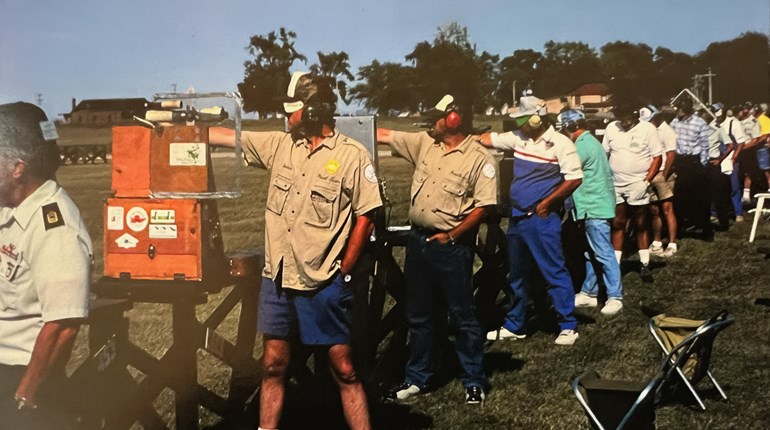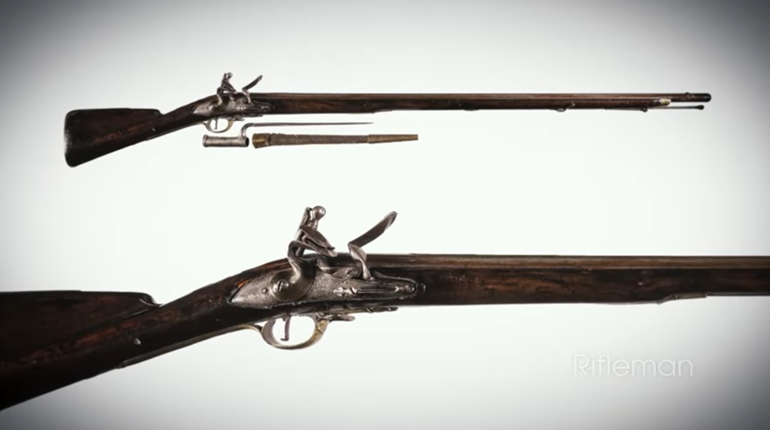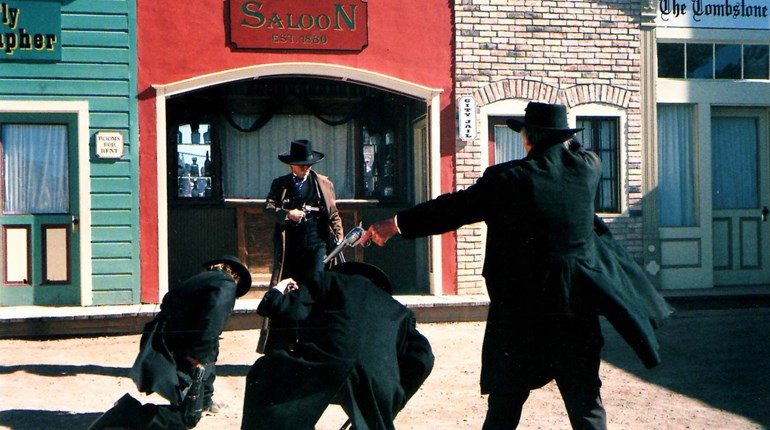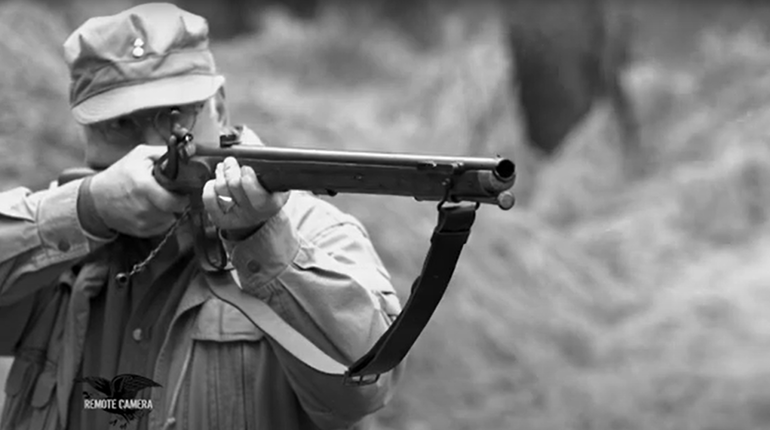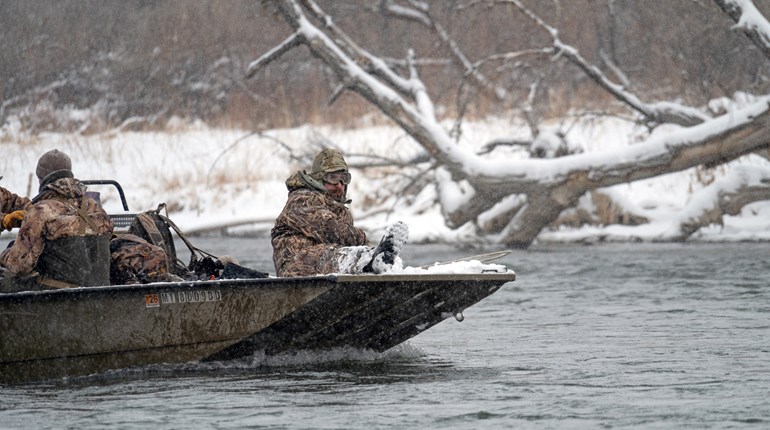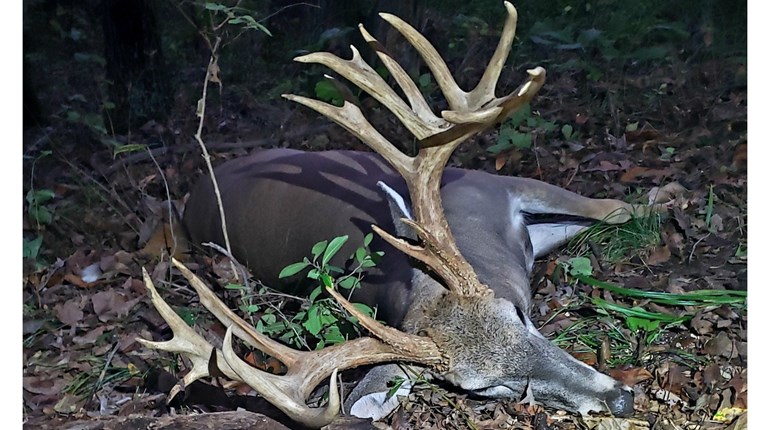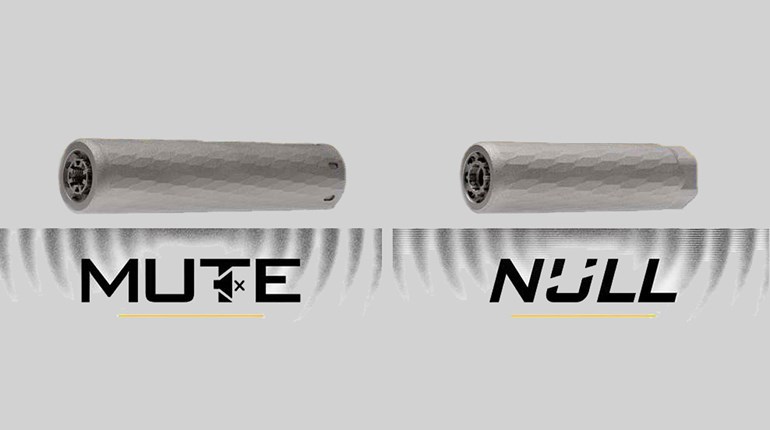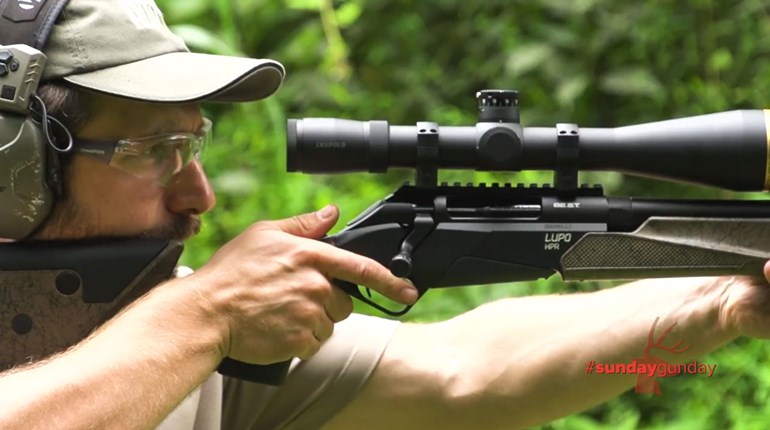
At 18 years old, he stood 6 foot 3, was strong as an ox and handy with both knife and gun. The year was 1855, and young James Butler Hickok, who would later become known as Wild Bill Hickok, had no trouble finding work as a stagecoach driver.
Highwaymen were a real problem in those days. They targeted stagecoaches because travelers usually carried money and because sometimes there was valuable freight, too. After just a few months on the job, the young Hickok had already had several run-ins with robbers, and his gun skills had definitely come in handy.
But this day had brought a different set of problems. The stagecoach had broken an axle outside of Wetmore, Colo., and Hickok and his passengers were forced to camp under the stars. Well, actually, the travelers were sleeping in the crowded coach. Wild Bill was bedded down under some nearby bushes, unaware that a wandering bear had earmarked him for dinner.
The bear sniffed the sleeping man, licked its chops and chomped down on Hickok's thigh. The young man awoke with a yowl. With his guns just out of reach, he grabbed for the six-inch knife at his belt. Oomph! Grrrrr! The ruckus awakened the passengers on the coach, who quickly lit a kerosene lantern so they could see what was going on. Grrrr! Thump!It was a wild scene as bear and man fought to the finish.
At last it was over. The bear shuddered and was still. Wild Bill lay sprawled on the ground, bleeding and near death. It would be a while before he fully recovered, but his reputation as one tough dude was firmly established.
Wild Bill Hickok was born James Butler Hickok in Troy, Ill., on May 27, 1837. He spent his youth on the family farm with his parents, four brothers and two sisters. From early on, he loved guns--practicing target shooting on squirrels, rabbits and other small animals. He quickly became known as a superb marksman.
In addition to farming, Wild Bill's parents operated a station along the Underground Railroad, which helped carry escaped slaves to freedom. Their anti-slavery beliefs were not popular with everyone, and Wild Bill's dad was gunned down when Bill was just 14. Three years later, Wild Bill left the farm behind forever.
Over the course of his life, he would be a stagecoach driver, a lawman, an Army scout and a professional gambler. His abilities with a gun became legendary--thanks in equal parts to the media, which loves a good story, and to Wild Bill himself, who enjoyed exaggerating his adventures. Such exaggerations, of course, fueled even more stories.
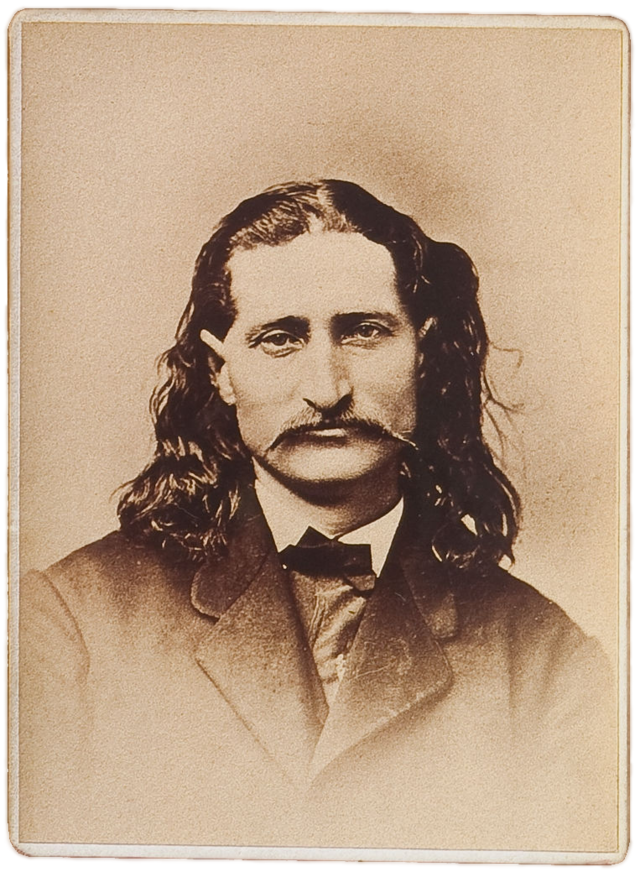 One of the most often reported was a gunfight between Wild Bill and Dave Tutt. The two men had apparently been friends until they had some kind of falling out--which may or may not have been over a woman. Their dislike for each other came to a head when Tutt took Wild Bill's prized pocket watch during an argument over a poker game. Tutt swore he'd wear the watch down the main street of town and Wild Bill, in turn, warned him he'd shoot him if he did.
One of the most often reported was a gunfight between Wild Bill and Dave Tutt. The two men had apparently been friends until they had some kind of falling out--which may or may not have been over a woman. Their dislike for each other came to a head when Tutt took Wild Bill's prized pocket watch during an argument over a poker game. Tutt swore he'd wear the watch down the main street of town and Wild Bill, in turn, warned him he'd shoot him if he did.
And so it was that on July 21, 1865, the two men faced off on a dusty street in Springfield, Mo. Tutt fired first, but the shot missed. Hickok's did not. It pierced Tutt's heart, killing him instantly. Wild Bill was acquitted of murder the next month after pleading self-defense. The shooting marked the first written reference ever to a “quick-draw duel.”
There were stories, too, about the origin of the moniker “Wild Bill.” Some said it was coined for his daring style of fighting during the Civil War. Others claimed it came about when Bill stopped a lynching. There, the story goes, a woman watching the scene yelled, “Ain't he wild.” In any case, by 1865 the nickname had stuck.
The end of Wild Bill's life was every bit as dramatic as the rest. It all started in Deadwood, S.D., on August 1, 1876, as he played poker with several men, including Jack McCall. “I'm cleaned out,” muttered McCall.
Wild Bill, who was winning handily, held out some of his take to McCall. “Here, Jack. Buy yourself some breakfast,” he offered. “And you might want to stay away from the tables until you can cover your losses.” Practically snarling, McCall grabbed the money and stomped away.
The next day, Wild Bill tried his luck at a different establishment. A cautious man, he always sat with his back to the wall and facing the door. But on that day, Charlie Rich was sitting in his favored chair. “How 'bout you sit over there, Charlie” said Wild Bill, motioning to the only empty seat.
Charlie just laughed and shook his head.
Reluctantly, Wild Bill sat down, his back to the door. As the next hand unfolded, Jack McCall entered the saloon. The game continued and McCall worked his way toward it, stopping three feet behind Wild Bill's chair. He watched the play for a bit, unnoticed. “Stop trying to look at my hand, Massie,” said Wild Bill to the man on his right.
“I'm not,” said Massie guiltily.
The other players kept their eyes glued to their own cards. Suddenly, McCall withdrew his revolver from his coat pocket. Bang! Mortally wounded from the shot to the back of his head, Wild Bill toppled to the floor. His cards, which included a pair of aces and a pair of eights, fluttered down and settled atop his lifeless body.
Wild Bill Hickok was dead at age 39. And to this day, a poker hand containing two aces and two eights is called a “Dead Man's Hand.”













